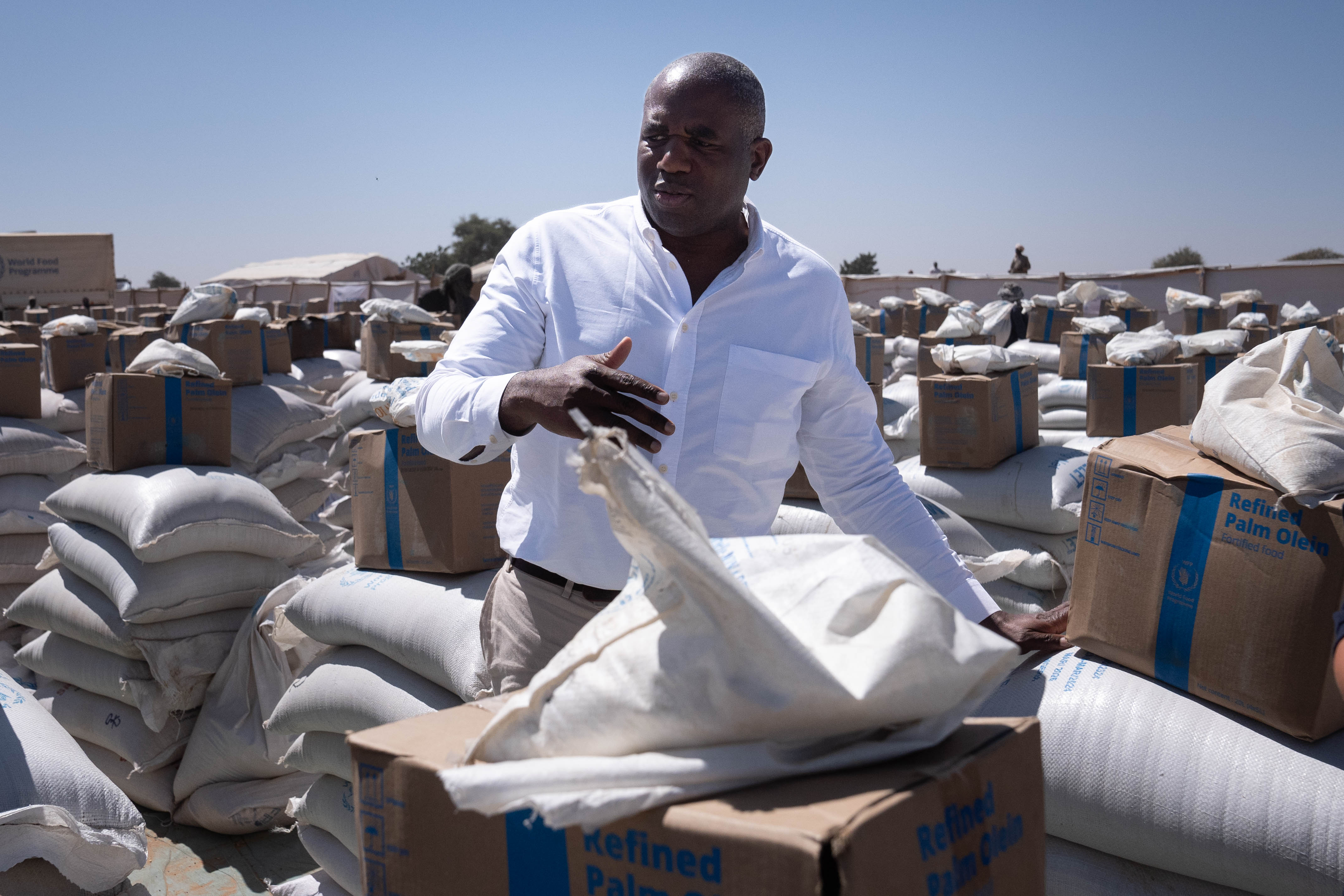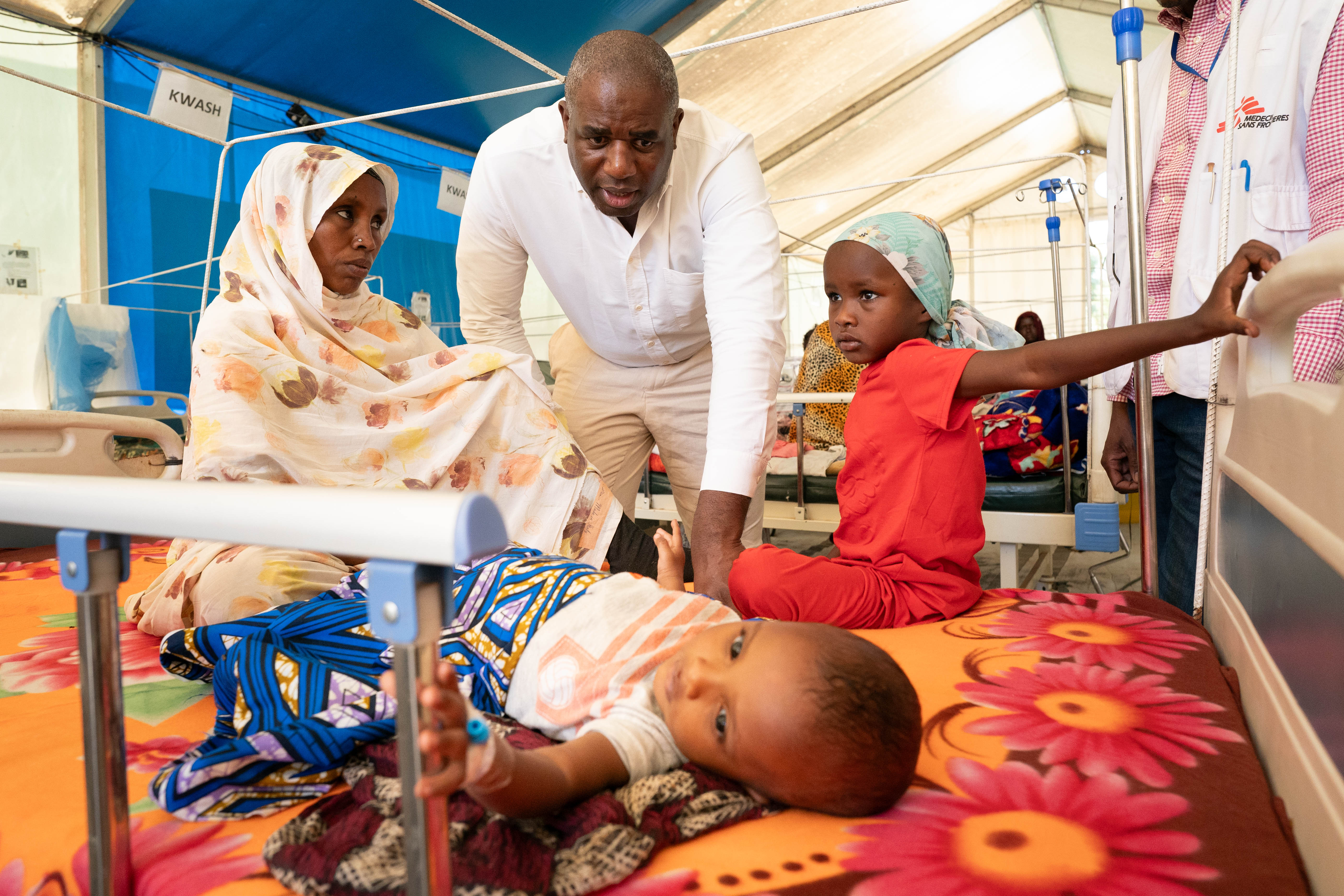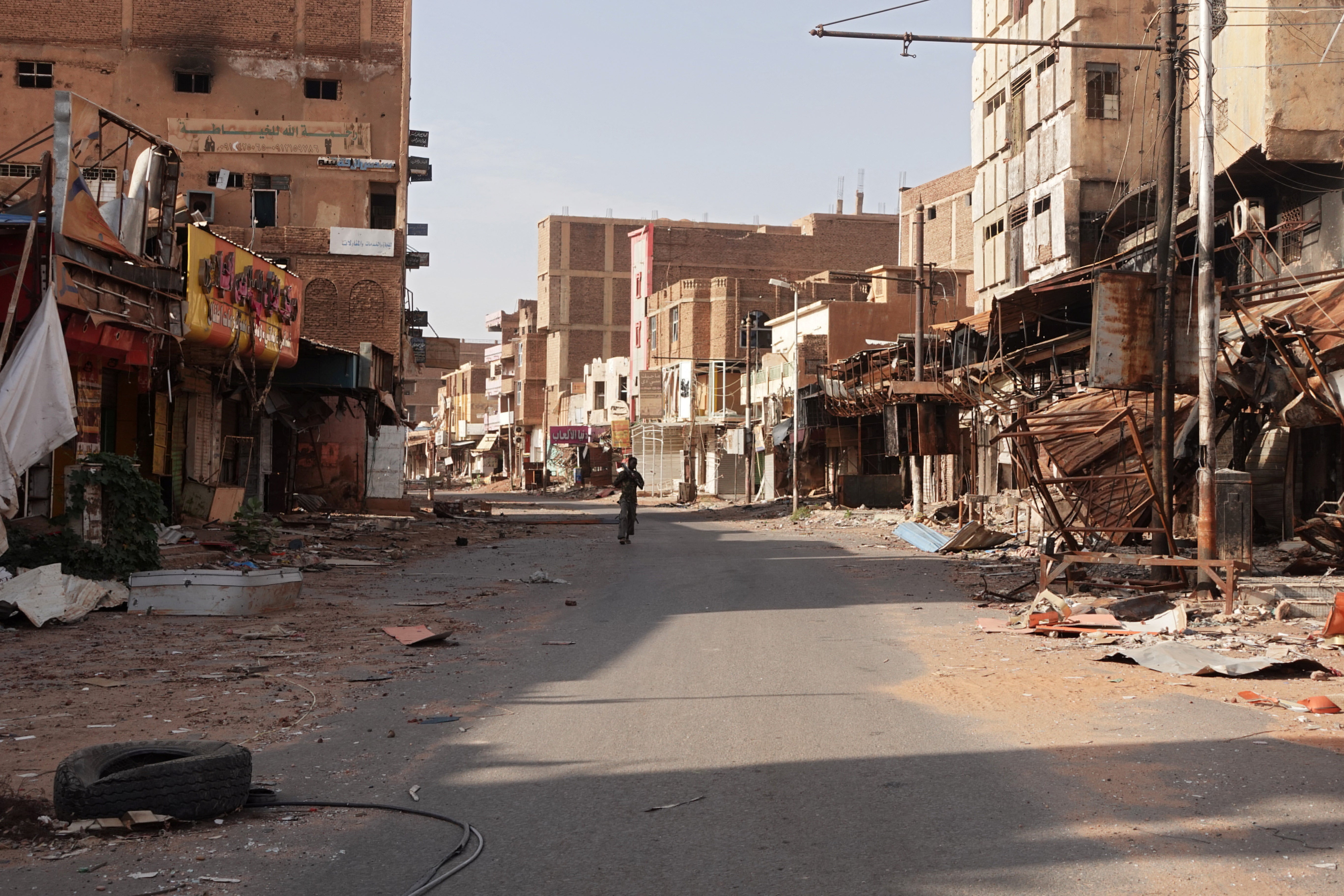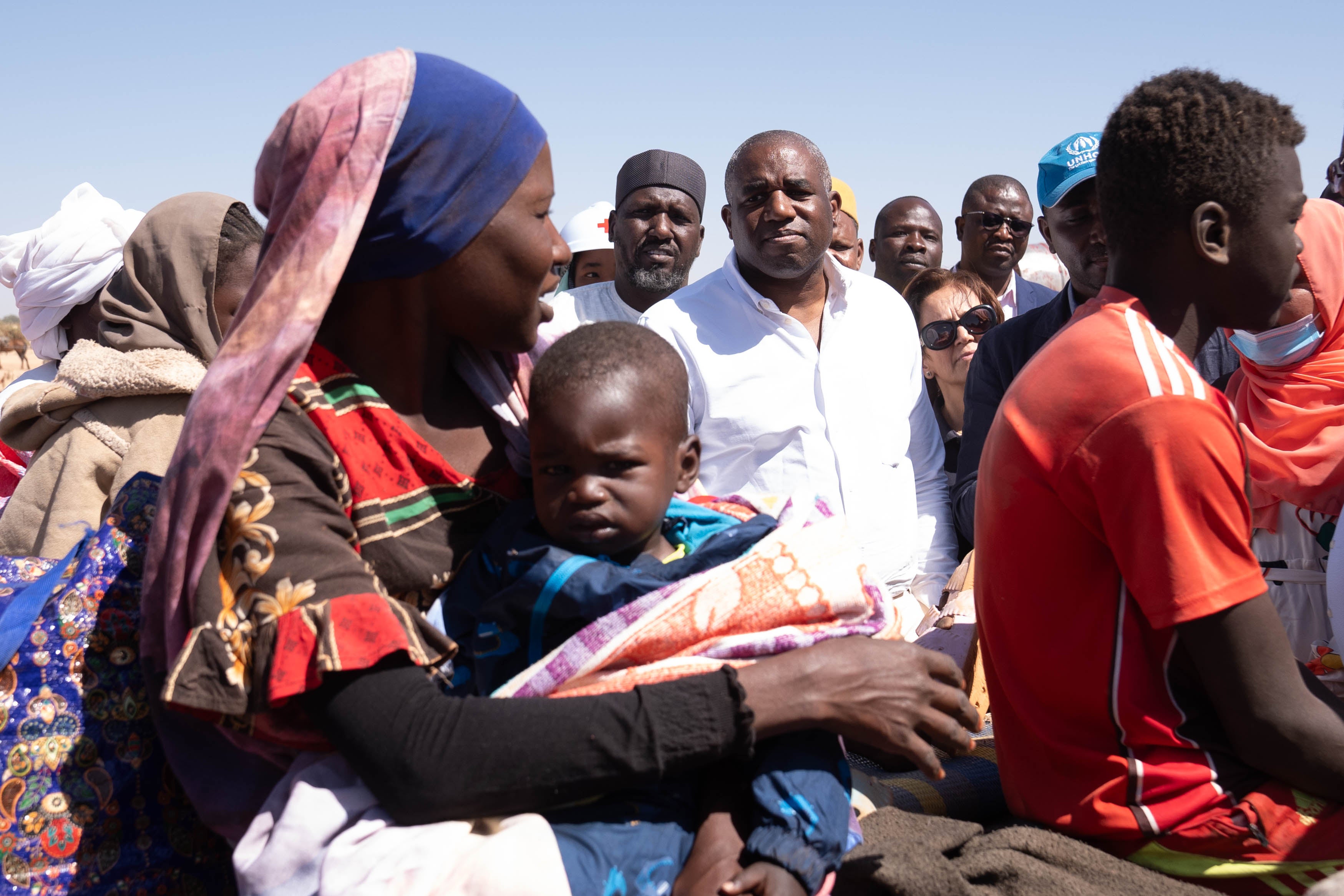David Lammy warns against hierarchy of suffering as Sudan crisis forgotten
Britain’s foreign secretary has renewed calls for an international effort to end fighting in the North African country nearly two years after civil war broke out

Sudan’s 21-month-long civil war must not be forgotten due to a “hierarchy of conflicts” as millions suffer, David Lammy has warned.
The British foreign secretary has renewed calls for a global effort to end the conflict as he warned it will be “one of the biggest humanitarian catastrophes of our lifetime”.
Nearly 4 million people have fled the North African country since the start of the war in April 2023.
Hopes of ending the fighting, which has claimed more than 15,000 lives, were dashed in November when Russia vetoed a draft UK-led UN Security Council ceasefire resolution.
Yet despite the growing humanitarian crisis, the civil war has failed to attract the same global attention of other conflicts, such as in Gaza and Ukraine.

Writing in The Independent, Mr Lammy, who this week visited a refugee camp in neighbouring Chad, said: “I bore witness to what will go down in history as one of the biggest humanitarian catastrophes of our lifetimes.
“The truth no one wants to admit is that if this was happening on any other continent – in Europe, in the Middle East, or in Asia – there would be far more attention from the media – far more outrage.
“There should be no hierarchy of conflicts, but sadly much of the world acts as if there is one.”
The war started when fighting broke out between the Sudanese Armed Forces and Rapid Support Forces in Sudan’s capital of Khartoum just two years after a coup in 2021.
The warring factions, led by General Abdel Fattah al-Burhan and Mohamed Hamdan Dagalo, respectively, are now locked in a battle for control of the state and resources.

Millions of refugees have fled to neighbouring countries like Chad, Ethiopia and South Sudan. More than 24 million people – half of Sudan’s population, are facing “acute food insecurity”, according to latest UN figures.
Mr Lammy criticised Russia, but praised the work of neighbouring countries like Egypt, Chad and South Sudan in helping manage the crisis.
He said there must now be an international commitment to ending the conflict and to opening all cross-border routes for aid and humanitarian workers.
“Despite support from every other member of the council, including China, Russia cynically used their veto to shoot [a resolution] down to end this catastrophe,” he said.
“Russia’s cynicism will not deter us. In spring, I am looking to convene foreign ministers in the UK to galvanise efforts for peace in Sudan.”
Sudanese people are facing deadly diseases such as cholera which are rapidly spreading, with hospitals and health clinics destroyed by war, the UN said.
Last week, the UN high commissioner for human rights Volker Türk warned the conflict was taking an “even more dangerous turn for civilians”.
His warning came after reports that dozens were brutally killed in ethnically targeted attacks in Al Jazirah state in southeast Sudan.

Ethnically motivated attacks by the Rapid Support Forces and its allied Arab militias against African ethnic groups, particularly the Zaghawa and the Fur, have also been reported in North Darfur.
Separately, some 120 civilians were reportedly killed and more than 150 injured in drone attacks in the city of Omdurman, on 13 January, the UN Human Rights Office reported.
The UK has pledged £226.5m in funding to provide aid such as emergency food assistance and drinking water to nearly 800,000 displaced people inside Sudan.
“The world cannot continue to shrug its shoulders,” Mr Lammy said. “There can be no hierarchy of suffering. We cannot forget Sudan.”
Join our commenting forum
Join thought-provoking conversations, follow other Independent readers and see their replies
Comments
Bookmark popover
Removed from bookmarks